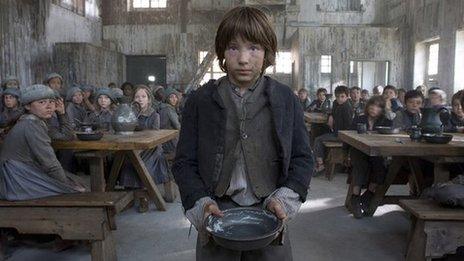Charles Dickens: Hunt for book containing Wilkie Collins's acid remarks
- Published
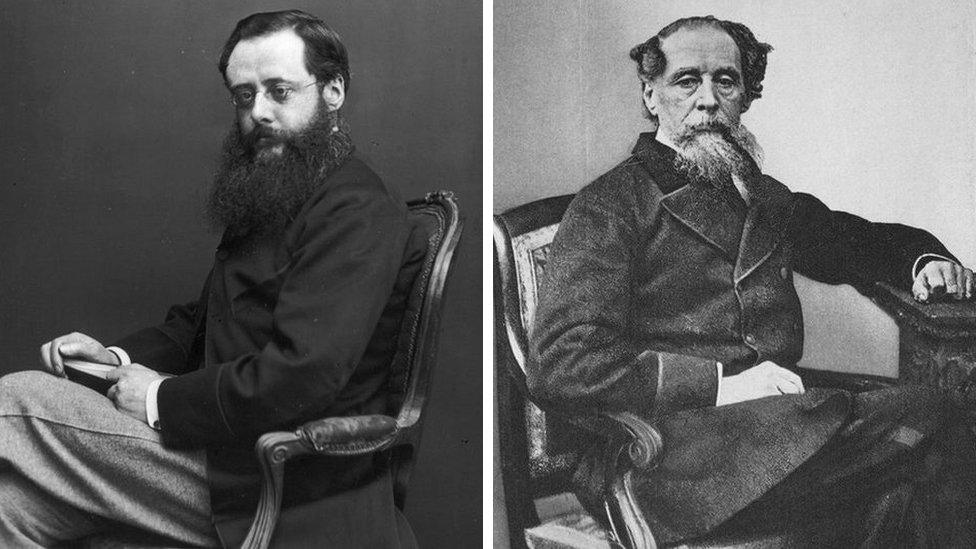
Novelists Wilkie Collins (left) and Charles Dickens were close friends for nearly 20 years
From the time they first met while acting in a play, the Victorian novelists Charles Dickens and Wilkie Collins were apparently the best of friends. However, the records of a book which has been missing for more than a century reveal there was more to their relationship than met the eye.
"No intelligent person can have read [the book] without astonishment at the badness of it... The melancholy work of a worn out brain... The weakest book that Dickens ever wrote."
While there are some who may agree with such opinions of Charles Dickens's less popular works, it is perhaps surprising they were the views of his contemporary and close friend Wilkie Collins.
The two novelists first met on 12 March 1851 when they featured as actors in the play Not So Bad As We Seem, written by their mutual friend Edward Bulwer Lytton.
They became close companions; working, performing, writing and travelling the world together. Collins's brother even married Dickens's daughter, further sealing the bond between the pair.
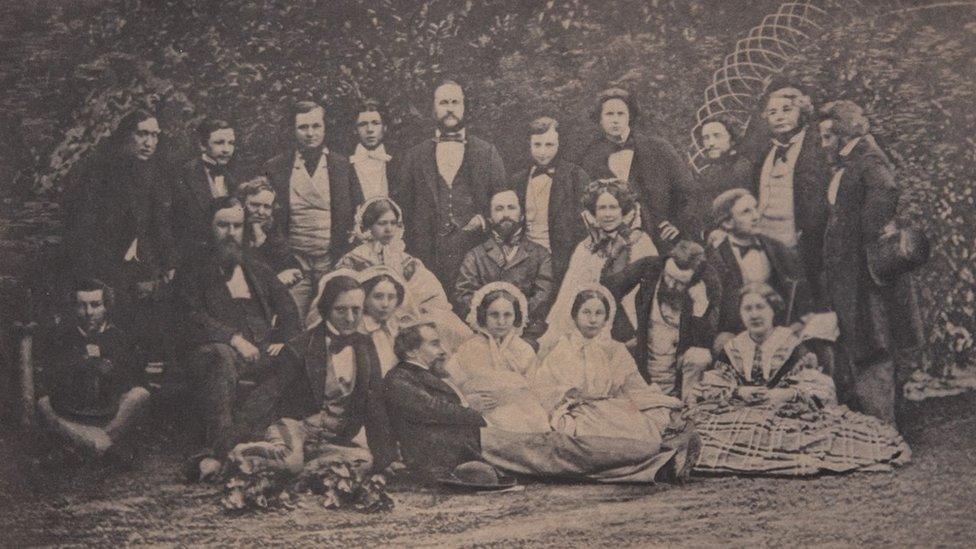
Collins wrote the play The Frozen Deep with Dickens and the pair featured in a photograph along with the cast in 1857 (Dickens is sitting centre front, Collins rests his head on a knuckle nearby)
However, following The Woman in White writer's death in September 1889 his feelings about his old friend's writing prowess came to light in an annotated copy of a Dickens biography, which Collins had tucked away in his library.
On the biography's very first page, where the biography's author John Forster had declared Dickens to be "the most popular novelist of the century", Collins had added in his own writing "after Walter Scott" (while popular at the time, it's fair to say it's a great deal trickier to find TV adaptations of the Scottish historical fictional writer every Christmas).
Elsewhere in his notes, Collins offered his thoughts about Dickens's numerous stories, with many of those scathing. These included:
Dombey and Son: "The latter half of Dombey no intelligent person can have read without astonishment at the badness of it"
Oliver Twist: "The one defect in that wonderful book is the helplessly bad construction of the story"
The Mystery of Edwin Drood: "The melancholy work of a worn out brain"
Barnaby Rudge: "The weakest book that Dickens ever wrote"
Not all of his words were so disparaging. For example, he considered Dickens's portrayal of Nancy in Oliver Twist to be the "finest [character] he ever did", while David Copperfield was "incomparably superior to Dombey".
As for A Tale of Two Cities, he felt the story to be "the most perfect work of constructive art that has ever proceeded from his pen" (although this comment was actually made in a note in a different book).
Nevertheless, the existence of such an annotated biography demonstrates just how complex the pair's friendship was, according to Emma Harper, curator at the Charles Dickens Museum.
"It was quite a complicated relationship and changed over time," she says, explaining how Collins had begun almost as Dickens's mentee before gaining independence from him later.
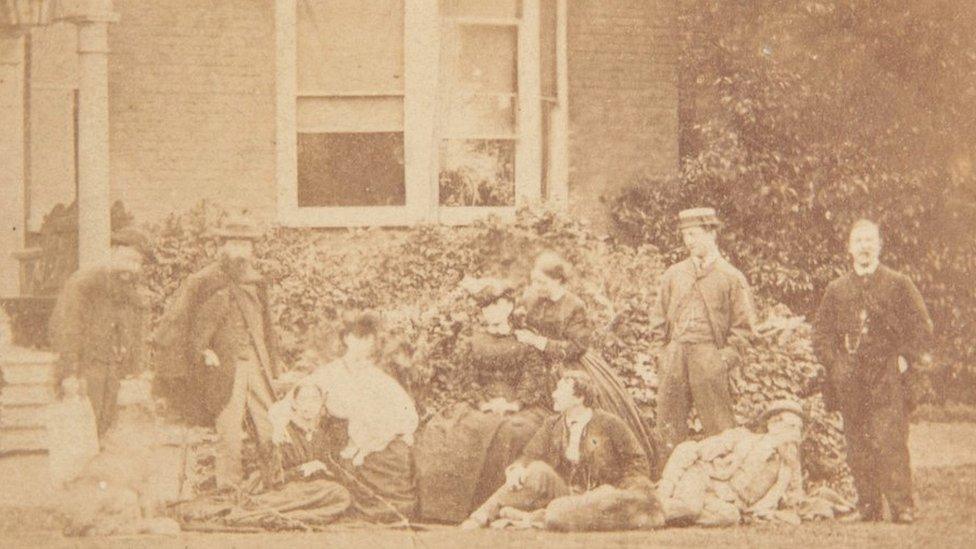
Collins (far left) would visit Dickens (lying down on the right) at his home at Gad's Hill in Kent
The annotated book has not been seen since it was sold by auction house Puttick and Simpson in January 1890, with the handwritten comments only known to exist because they were recorded in a sale preview published in the Pall Mall Gazette at the time.
The museum has launched an appeal to try to locate the book ahead of the opening of a new exhibition next month exploring the pair's working and personal relationship.
Ms Harper believes that if it is found, the biography would be likely to reveal further insights about Collins's feelings for his friend.
"It would be amazing if it did turn up... I'm imagining it has lots more marginalia in the book which I would love to discover," she says.
"It maybe is a bit of a long shot if I'm honest, but you never know what could turn up."
Mutual Friends: The Adventures of Charles Dickens & Wilkie Collins runs at the Charles Dickens Museum from 15 November to 25 February 2024.

Listen to the best of BBC Radio London on Sounds and follow BBC London on Facebook, external, X, external and Instagram, external. Send your story ideas to hello.bbclondon@bbc.co.uk, external
Related topics
- Published26 August 2023
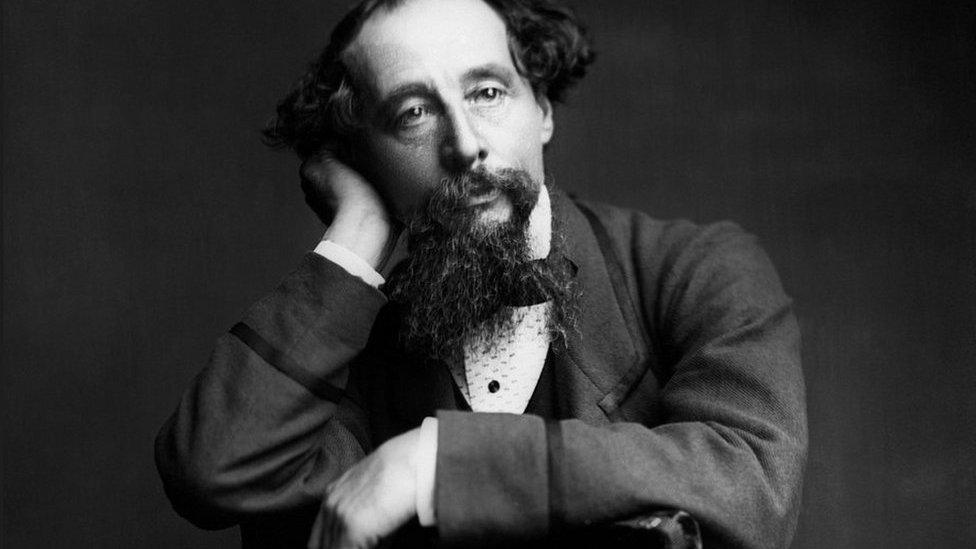
- Published6 February 2022
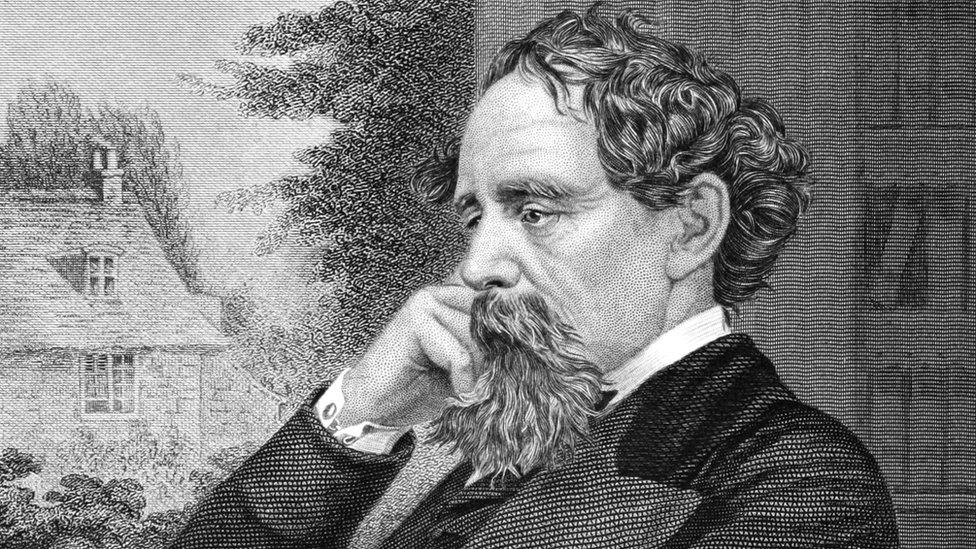
- Published15 December 2011
